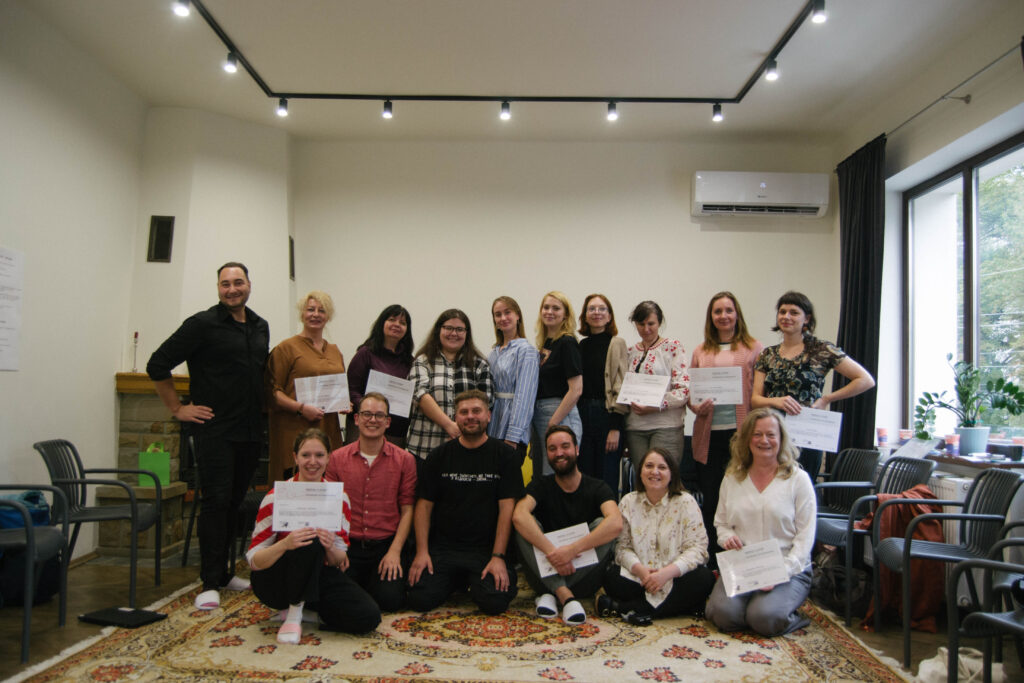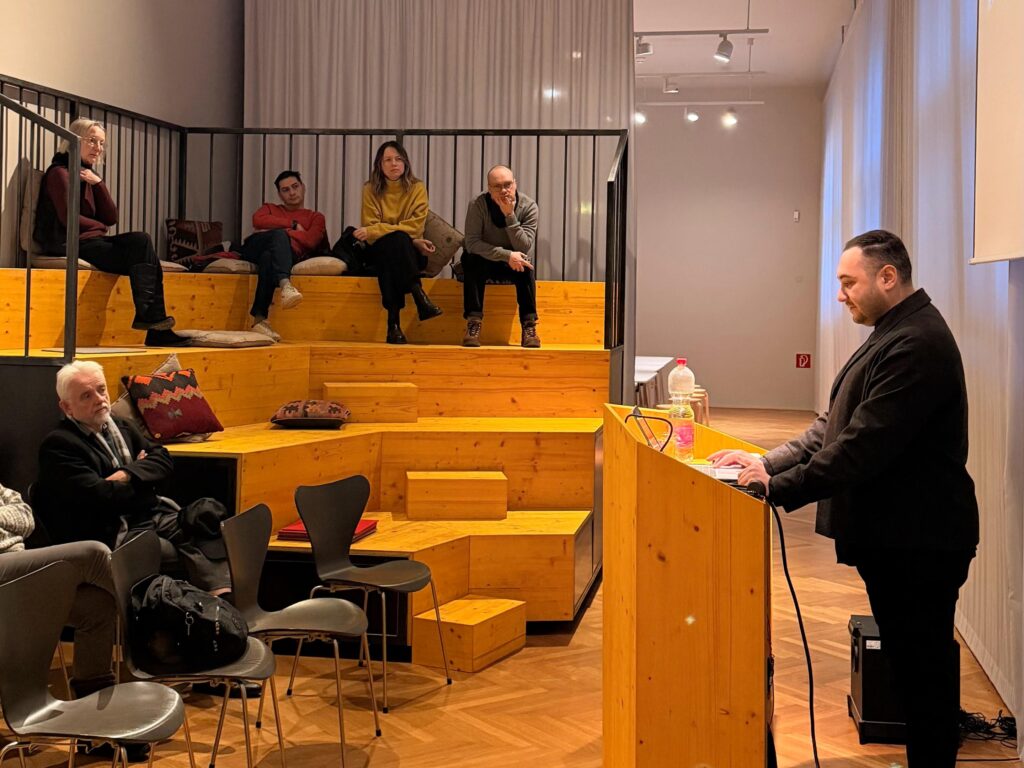Where Past and Present Intersect: Remembrance in Dialogue in Ivano-Frankivsk
From 12 to 14 September 2025, a group of teachers, educators, and researchers from Germany, Poland, and Ukraine took part in a study trip to Ivano-Frankivsk within the framework of the EVZ-funded international project “Remembrance in Dialogue.” The project explores Holocaust remembrance in times of Russia’s ongoing war of aggression against Ukraine, while preparing participants to become multipliers of remembrance culture in their professional environments.
Ivano-Frankivsk, historically a multicultural city with Polish, Armenian, German, and Jewish roots, provided an important backdrop for this exploration. Under Soviet occupation, many Poles were arrested, deported, or executed. During the German occupation, the city’s Jewish community was almost entirely annihilated. Today, traces of these histories remain visible through memorial plaques, monuments, and commemorative events, but also through the expertise of local historians – some of whom we were fortunate to meet on guided tours that revealed both the visible and the hidden layers of memory. Ivano-Frankivsk exemplified to our group an entangled history, where spaces of remembrance are now also filled with memorials dedicated to fallen Ukrainian defenders in the current war against Russia’s full-scale invasion.
“Ivano-Frankivsk, with its multicultural past and the many upheavals it has witnessed, confronted our group with both the presence and the absence of the histories of the communities that shaped the city,” said Igor Mitchnik, First Executive Director of Austausch e.V. “Facilitating dialogue between Germans, Poles, and Ukrainians – here, in a place where history is now being written every day through the extraordinary resistance of Ukrainians to Russian aggression – was an intense experience. Even in the midst of war, Ukrainians continue to reflect on these histories, reminding us that we better understand ourselves, our cultures, and our shared pasts when we also see them through the eyes of others.”
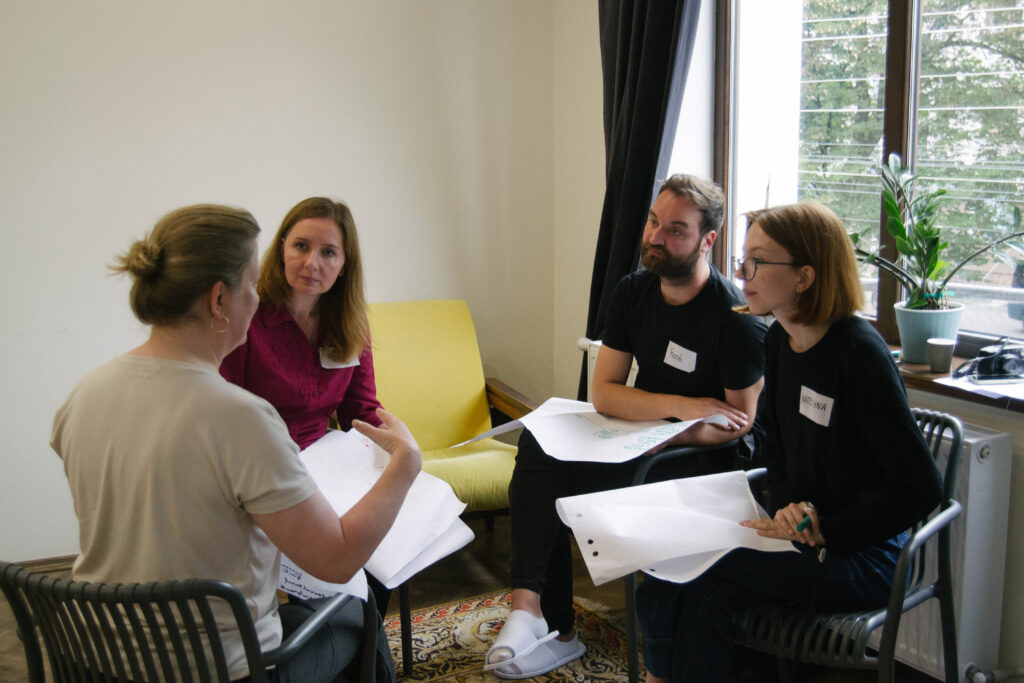
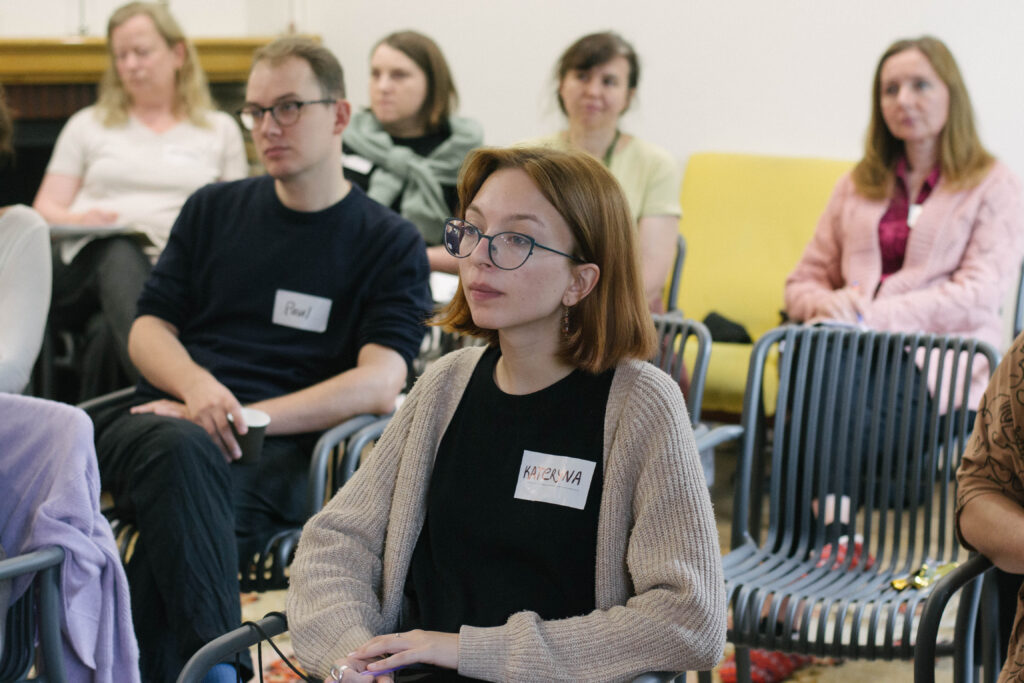
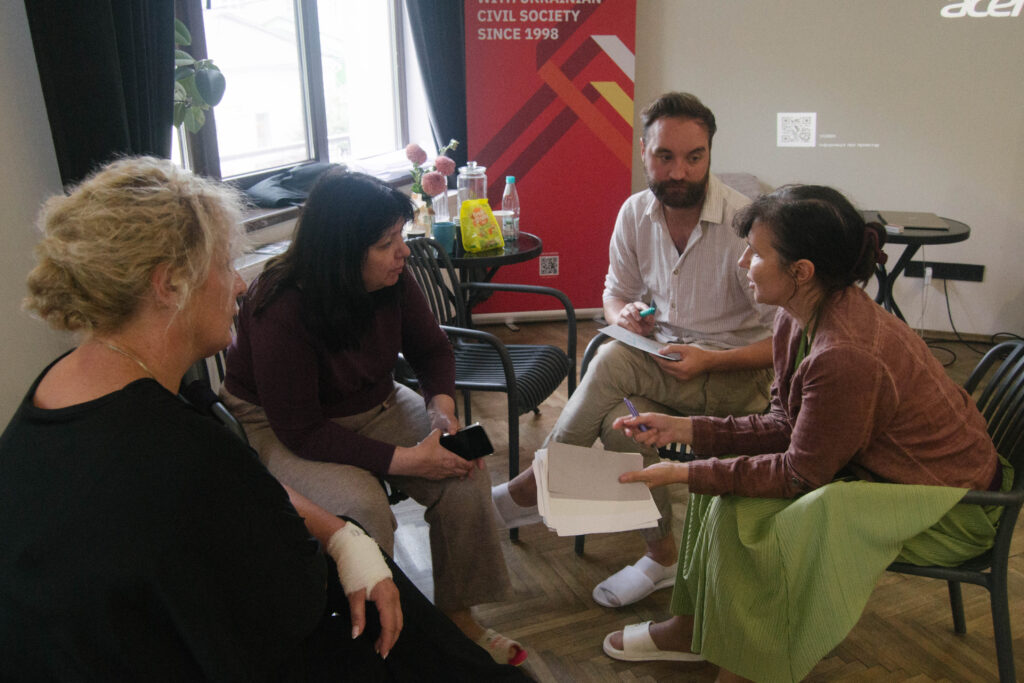
Highlights of the programme
The study trip began with a lecture by historian Heorhij Kasianov, who provided an overview of remembrance culture in Ukraine, tracing its evolution after independence and the new challenges brought by the ongoing war. His academic input highlighted the complexity of mnemonic actors in Ukraine since World War II, after independence in 1991, and following Russia’s invasions in 2014 and 2022. This laid the theoretical foundation for participants to critically reflect on memory politics in times of crisis.
The lecture was followed by a historical excursion led by Ihor Antoniuk, who guided participants through the city’s Jewish, Polish, and German past and heritage. A particularly memorable moment was the visit to the only functioning synagogue in Ivano-Frankivsk, where the group learned about the life of the contemporary Jewish community of roughly 500 members. Like all other communities in the city, it has been deeply affected by the full-scale invasion: while some families left at the beginning of the war, new families displaced from other regions of Ukraine have since arrived, helping to sustain community life.
Challenges to education during wartime were also a central theme of the programme. In a session with Anna Lenchovska, participants explored how Russia’s war impacts everyday school life in Ukraine – from security concerns to the emotional burden placed on teachers and students, as well as the visibility and invisibility of trauma and the ways in which it is addressed within schools.
For Paul Stricker, project manager of Remembrance in Dialogue, this moment captured why the project is so essential:
“We wanted to strengthen our connection as a multinational group, with our diverse professional and personal experiences, to Ukraine and bring educators from Germany, Poland, and Ukraine together. The participants brought amazing expertise and perspectives, which helps to reconcile different views and create a common European memory space. And seeing how Ukrainian civil society continues cultural and educational work even in dire wartime was deeply inspiring.”
The trip also connected participants with civil society initiatives and cultural institutions that play a vital role during the war, while expanding their understanding of the kinds of projects urgently needed in Ukrainian society today. Meetings with the organization STAN, the Ivano-Frankivsk Drama Theatre, and the Potocki Palace renovation project demonstrated how communities sustain cultural and civic engagement under wartime conditions. The group also visited Asortymentna Kimnata, an art space partnered with our organization Insha Osvita, which is currently hosting an exhibition of, among others, Ukrainian artists working during the war.
Finally, a workshop invited participants to reflect on their impressions and co-develop new concepts of remembrance work in times of crisis, laying the foundation for future cooperation.
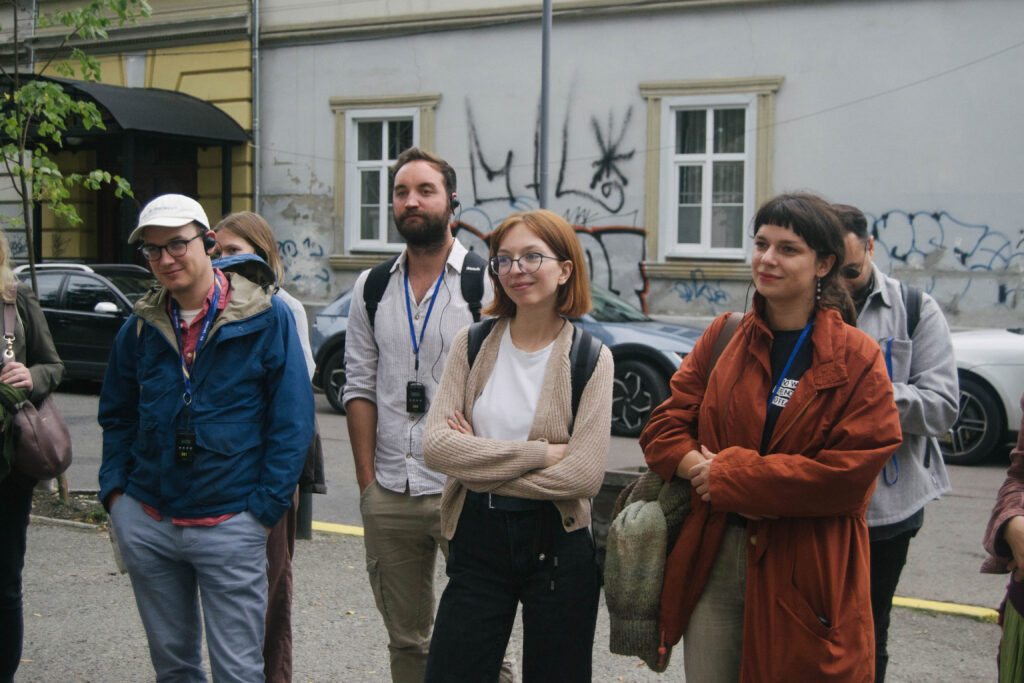
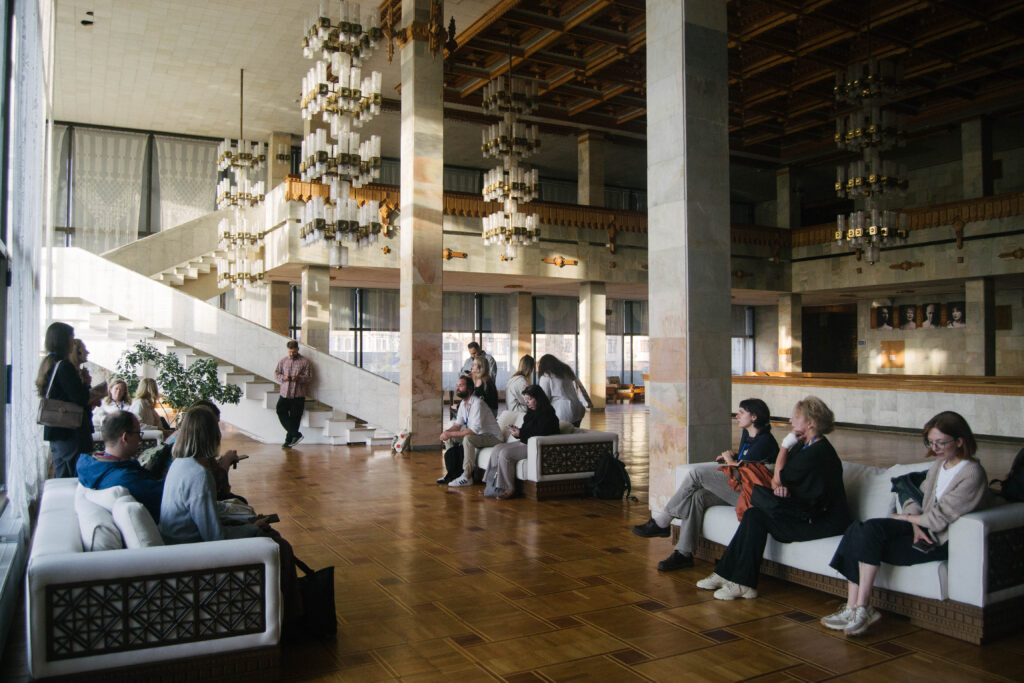
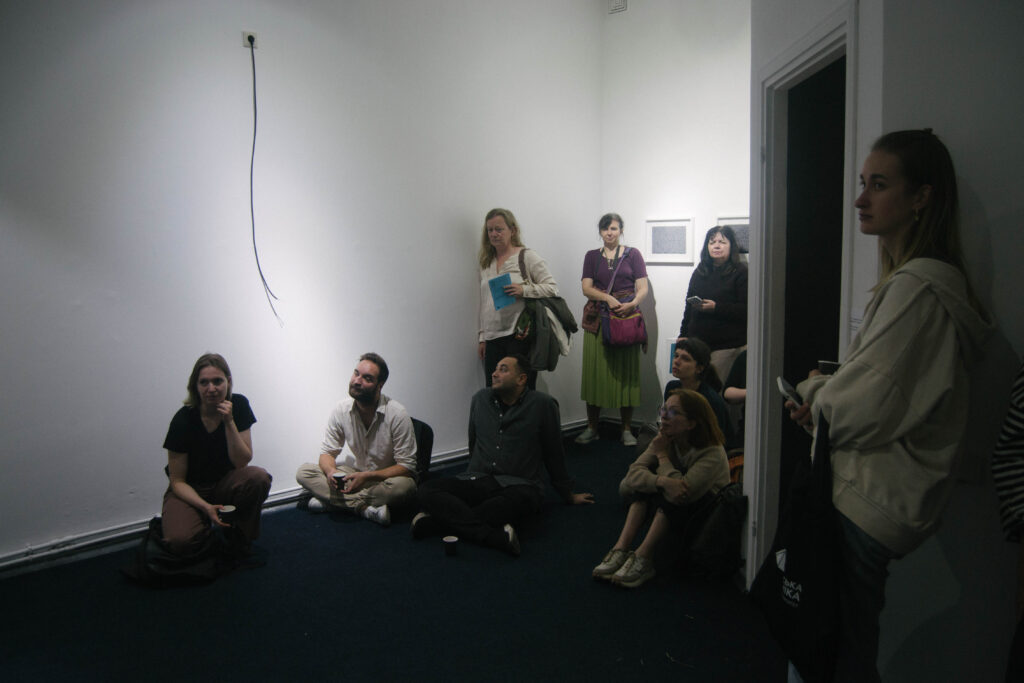
For many participants, the study trip was also a deeply personal journey:
“In Poland, Holocaust memory has always been connected to our own complicated history. Under communism, remembrance was politicized and focused mainly on Polish suffering, neglecting Jewish experiences. Today, we try to focus more on human stories and oral history. That’s why exchanges like this are crucial – they show us the complexity and diversity of memory.”
– Joanna Kudyba-Antonik, Kraków, Poland
“I’m deeply impressed by the engaged local actors in Ivano-Frankivsk. The way they connect the memory of World War II and Nazi crimes with the current experience of war is powerful. It shows how painful memory can be… but also how important it is to share.”
– Dr. Alexandra Köhring, Neuengamme Concentration Camp Memorial, Germany
“Ivano-Frankivsk connected me more with my grandfather’s birthplace. He was born here. I saw how much Ukrainians care for their heroes, but also how they remember the multicultural history of this place – Poles, Armenians, Germans, Jews. This is a city where layers of memory coexist.”
– Inga Marczyńska, Jasło, Poland
“Since 2022, remembrance in Ukraine has been profoundly influenced by Russia’s genocidal policies. We see many parallels with the Holocaust and the need to preserve truth for future generations.”
– Inna Chernikova, Ukraine
The study trip was not the end, but part of a longer journey. Participants will now continue with online meetings and joint collaboration on a methodological guide on remembrance and historical education in times of war. This guide will serve as a tool for educators across Germany, Poland, and Ukraine to share approaches and strengthen cooperation.
We sincerely thank STAN for hosting our meetings and Taras Hrytsiuk for his thoughtful moderation throughout the trip.
The project is organised by Austausch e.V., Insha Osvita, Fundacja Zapomniane and Urban Memory Foundation and is funded by the EVZ Foundation and the Federal Foreign Office as part of the program YOUNG PEOPLE remember international. #JugendErinnert, #YoungPeopleRememberInternational, #EVZgefördert
